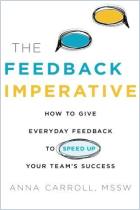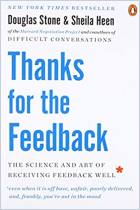Performance consultant and former Olympic diving hopeful Deb Bright shows readers how to give and receive criticism. Drawing from her research on the effects of receiving criticism on workplace stress levels, and other studies about criticism, she explains how it works, how to create a workplace environment that’s conducive to feedback, how to give and take criticism, and how to avoid common mistakes as a “giver” and “receiver” of critiques. She teaches givers how to build their confidence and become more comfortable when criticizing. Receivers learn how to accept criticism as useful without becoming emotional. Bright also covers how to manage teams and cope with difficult situations. getAbstract recommends her practical, applicable advice to anyone seeking to create a workplace that embraces healthy, productive criticism.
Understanding Criticism
Leaders should value the role of criticism in their organizations. Ignoring a problem and hoping it will disappear doesn’t work. Supervisors need to be able to give – and receive – criticism. Many people in Western cultures have difficulty with criticism. Americans tend to indulge in euphemisms like “constructive criticism” or “negative feedback.” Most people think criticism is intended to be hurtful, but the opposite is true. When you fail to give criticism, you are missing an opening you could use to help your employees reach their full potential. Criticism is not always negative. Sometimes you can use it to help a good performer reach an even higher level.
“Creating an Atmosphere of Acceptance”
For criticism to be effective, leaders need to create an organizational culture that accepts it. Mutual trust and respect help nourish a workplace that embraces and appreciates criticism. Create unambiguous relationship boundaries, and set shared goals and priorities. People working in a trusting atmosphere understand that criticism can help them and won’t question givers’ motives.
People have different preferences for how they wish to...






















Comment on this summary or 开始讨论